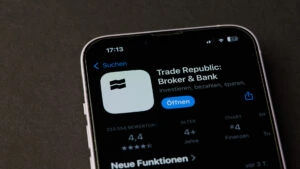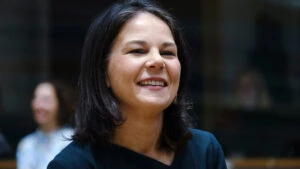One part of the ongoing digitalization process is tokenization. It allows different financial products to be mapped digitally. This was not always possible. In the past, shares were only issued in paper form by a broker or intermediary. Today, this is no longer necessary.
What is possible with the help of tokenization? What else can we expect in the future? And are there any challenges?
Tokenization – how it works
The term tokenization is now mainly used in connection with regulated financial products. Often also in the context of real world assets (RWA). With tokenization, shares are represented in the form of blockchain tokens. Every investor is able to store the shares on their own crypto wallet – in the form of security tokens. Unlike utility tokens, security tokens are not as easy to produce and issue. The reason for this is the regulation of the financial authorities, such as BaFin in Germany. The tokens must comply with these regulations.
In principle, a tokenization project corresponds to a traditional financial instrument. What is new about it is the blockchain technology, which enables a new type of representation. Among other things, it simplifies trading and transferability. It also offers new possibilities thanks to Web3. Since tokenization projects are so similar to traditional financial instruments, it is not surprising that they are subject to the same rules.
If a company wants to raise money to expand its own business, tokenization can simplify such a process. The first step is to define how much money is to be raised and what type of tokenization is to be used. For example, shares in the company could be sold or profit rights to products could be assigned. These are just two of many different options. Companies often seek help for this, for example from platforms such as Intokia. They have a lot of experience and can therefore handle processes professionally. Once all legal matters have been clarified, the tokens can be sold to investors via online portals. Dividends and the like are paid out either via the blockchain itself (in the form of stablecoins) or by traditional bank transfer.
The potential for companies and real estate
Companies that need capital due to expansion can take advantage of tokenization in the future. This makes it possible for them to accept funds from several investors at the same time. In traditional fundraising, you have to go to a notary with the investors to transfer shares. This is no longer necessary with tokenization. Money is accepted automatically, without a notary. And once the money has been transferred, the investors receive tokens, either from the company itself or via a tokenization platform. In Germany, there are some offline hurdles, as it is not so easy to transfer company shares online, for example. However, these hurdles can be circumvented with the help of tokenization. Various types of financial products are also conceivable, such as shares, equities, profit participation rights or bonds with fixed or variable interest rates.
Tokenization also offers enormous potential for property purchases. This means that a property can be sold not just to one person, but to several at the same time. For example, if several residents of an apartment building want to invest in this property, each of them has the opportunity to purchase a fraction of it. These parts are then represented via blockchain tokens. The rental income, minus management costs, is usually distributed annually. In principle, however, distributions can also be made quarterly, monthly or even daily.
The challenges
One challenge is the long-term holding of the tokens. Larger and institutional investors are asking themselves how they can not only buy the tokens, but also hold them. Usually, there is no infrastructure or internal processes in place to hold crypto assets. For this reason, it might discourage larger investors from investing in such projects.
But there is a solution, and it is called regulated crypto custodians. In the past, BaFin has already issued several licenses for such cases. The crypto custodian fulfills the tasks of a broker in the traditional financial world. This means that they do not even need their own infrastructure.
Tokenization and DeFi
Decentralized finance (DeFi) offers an effective solution with decentralized trading, among other things. With DeFi, security tokens can be combined without any loss of functionality, such as the required KYC processes. There is a so-called KYC-NFT, which allows security tokens to be traded on decentralized exchanges. The issuer is always informed about who is in possession of tokens and when. Finally, the KYC obligation continues to apply to the investor.
In these cases, the security tokens are sent to the investor’s wallet. The wallet can be connected to the application, which then knows which tokens you have in your possession and which identity can be attributed to you. Online companies that only offer their services online are thus offered a new way of interacting with investors. Every investor who invests a certain amount can be offered special benefits. For example, investors in a hotel who have invested at least €50,000 can receive free access to the spa area for life.
Outlook and conclusion
Tokenization is still in its infancy. It is to be expected that much more will be possible in the future. The legal framework for this is already in place. In Germany, there have only recently been positive developments in this area. New projects are being launched every day. In principle, anything that represents value can be tokenized. This can be all kinds of company shares, products, art and other valuable items as well as intangible things such as patents. It will still take some time before the technology is fully accepted and used. But it is quite likely that it will replace traditional share trading in the long term.






